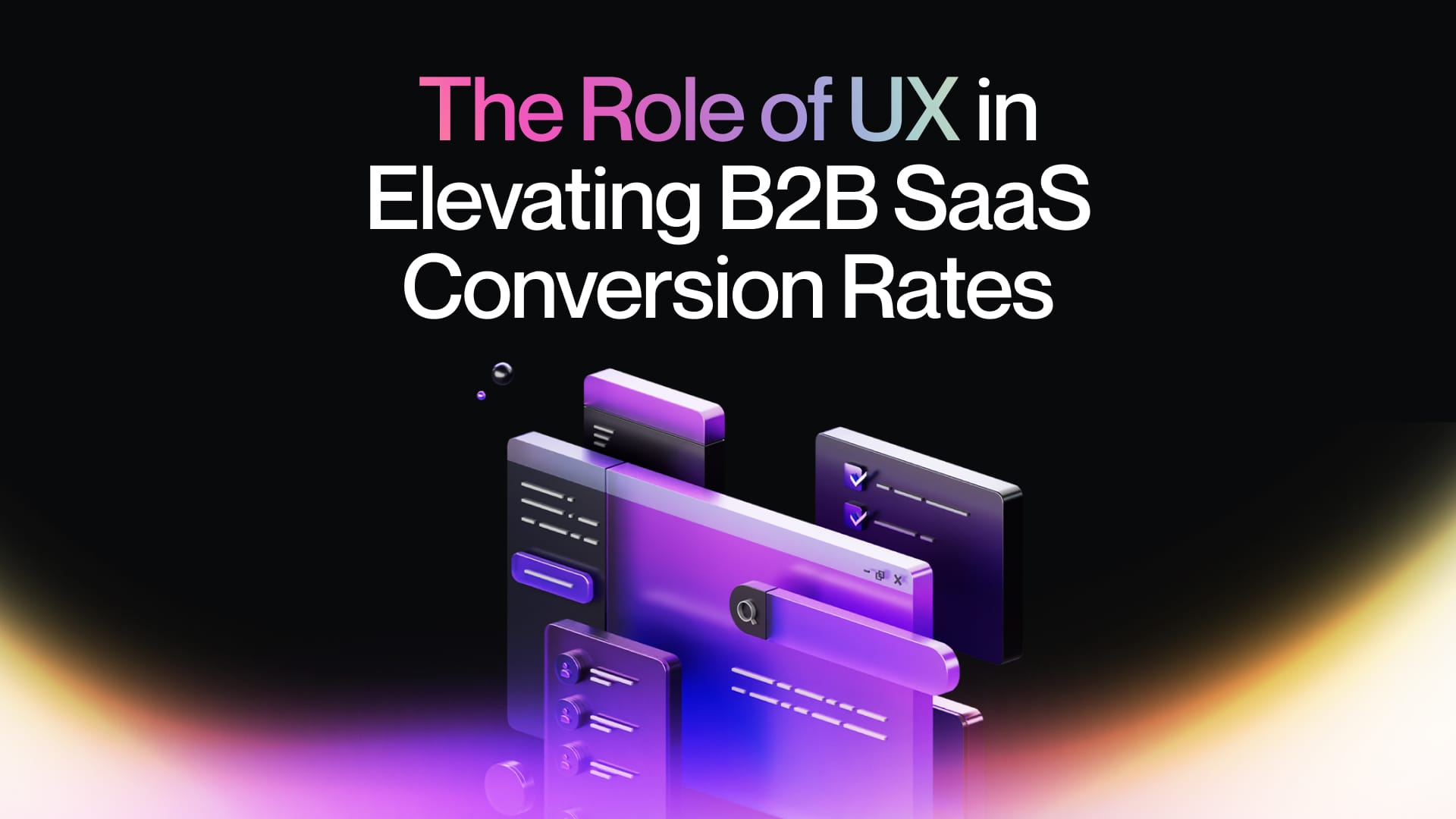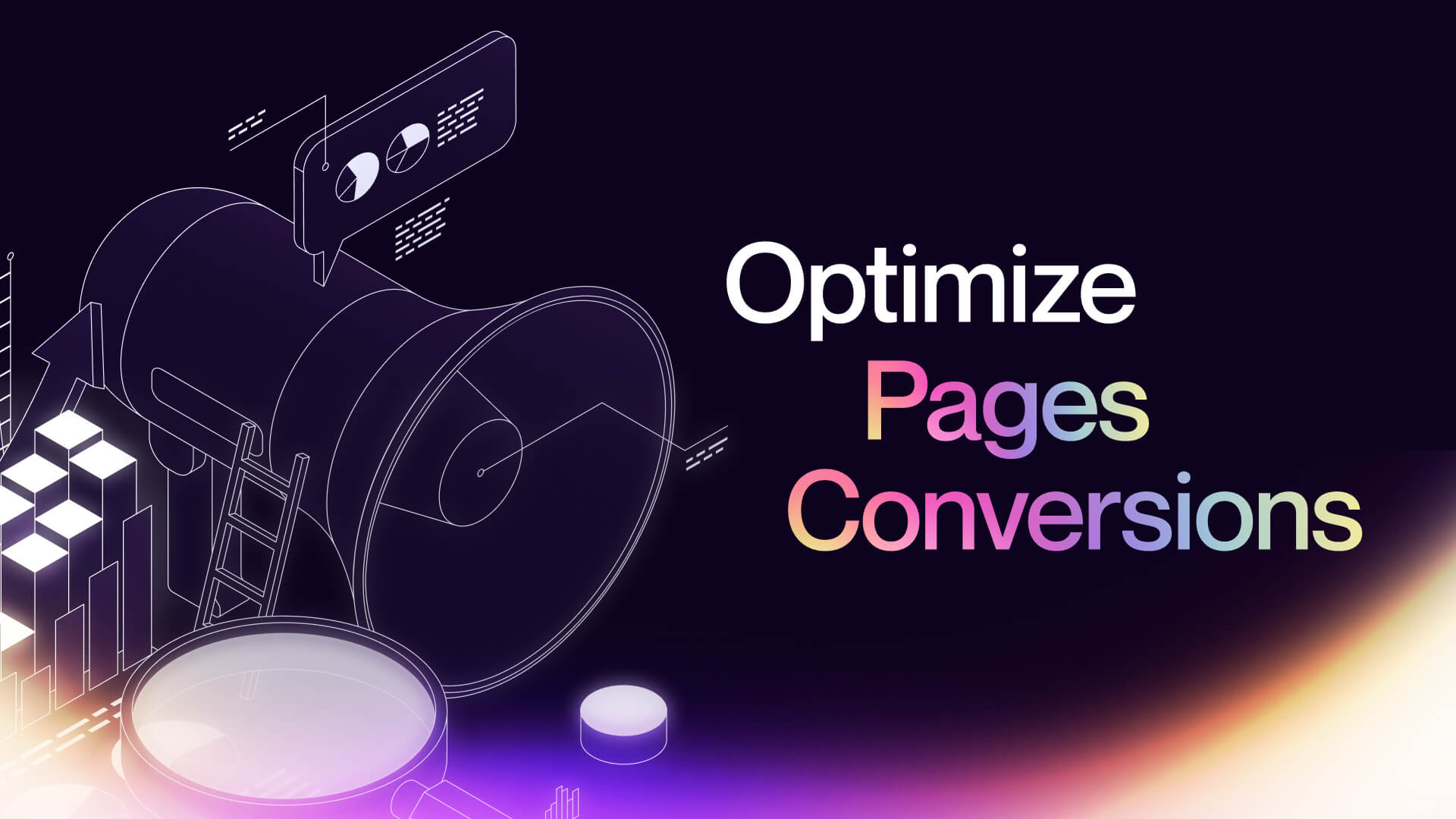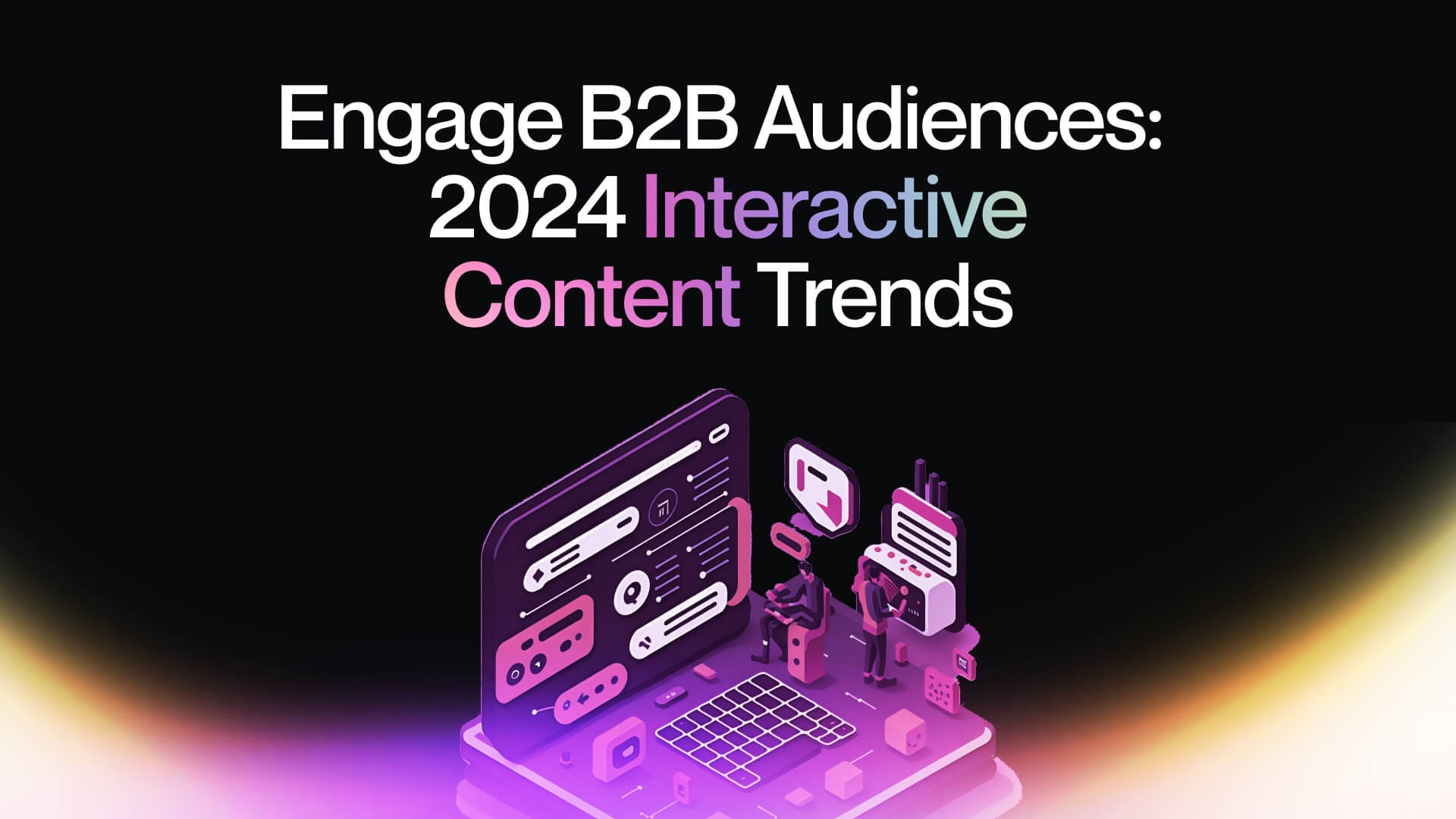Whatever digital sphere you work in today, one thing is certain - conversion rate is a sure indicator of how successful you are. This is especially important in the highly competitive B2B SaaS world we have today.
In other words, the conversion rate is the core of any digital platform, measuring how many viewers and visitors will actually convert into loyal customers.
Conversion rate is related to User Experience (UX). Going forward, the conversion rate can be successfully tracked but improved when you truly understand the impact of UX on the conversion rate.
However, many people don't understand exactly what factors drive the B2B SaaS conversion rate and create incredible success.
In this article, we'll explore the strategic significance of UX in driving B2B SaaS conversion rates.
Although marketing strategies for boosting conversion rates are crucial, UX is often overlooked. We'll analyze the link between UX and conversion rate and show you how to use an optimal UX to increase your B2B SaaS performance while avoiding a drop in conversion rate.
What is a B2B SaaS Conversion Rate and How Does it Work?
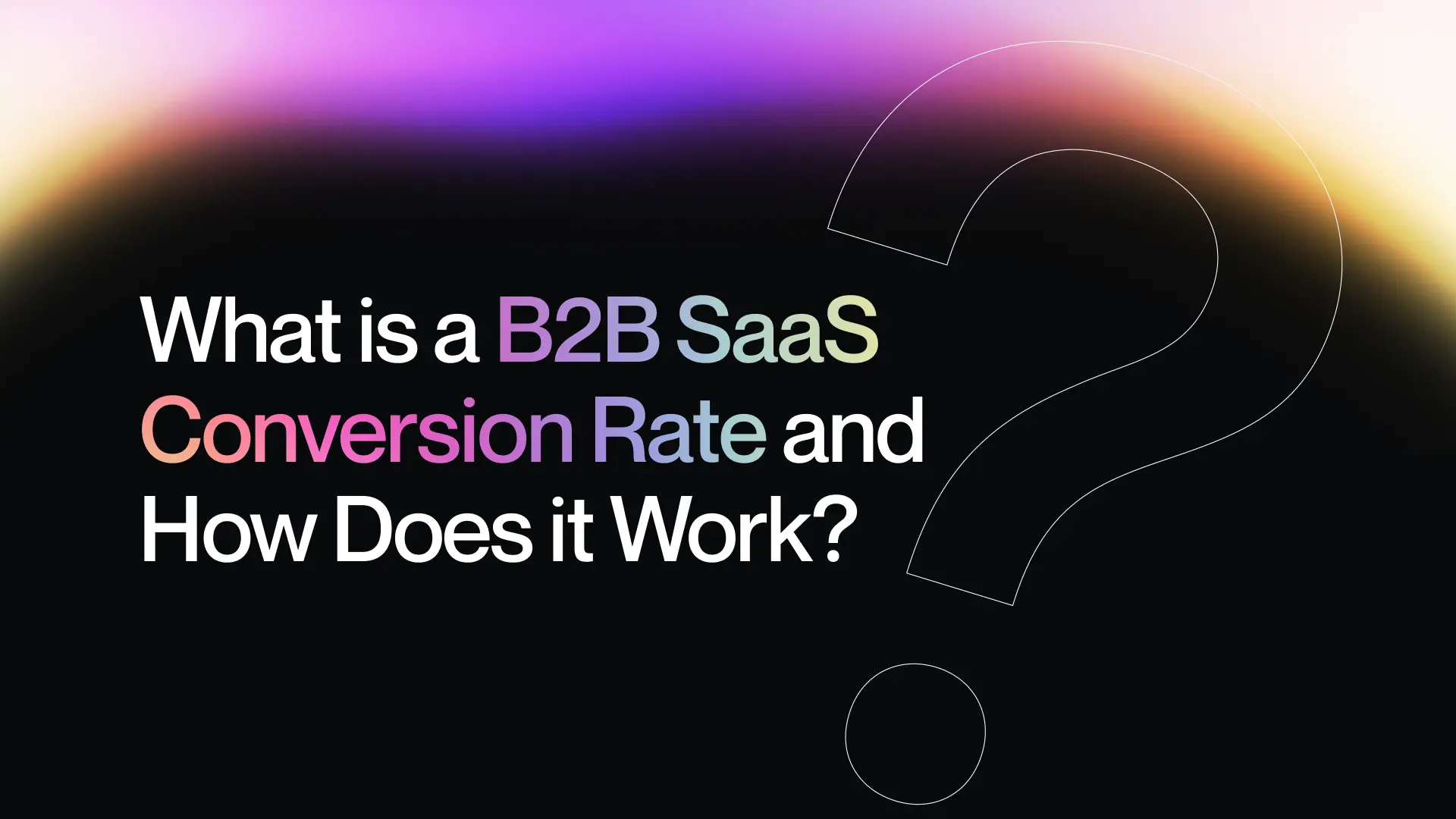
B2B Saas conversion rate symbolizes the percentage of users who perform a concrete action, regarding the number of total website visitors. The conversion rate also provides insight into how your B2B SaaS marketing strategies are going and the ultimate effectiveness of your final sales efforts.
Wondering why this is important? Well, it's simple.
There is no business success without conversion rate analysis in the B2B SaaS world. Essentially, the conversion rate allows companies to analyze, understand, and adjust their marketing strategies to get an optimized user experience.
The ultimate goal of this is to achieve greater user attention and ultimate profitability.
To gain a better understanding of how B2B SaaS conversion rates work, it's important to take into account the various metrics that make them up.
These commonly include free trial signups, demo requests, and the coveted "buy now" click. By closely monitoring these metrics, B2B SaaS companies can obtain valuable insights into customer engagement and pinpoint areas for improvement.
Going further, optimizing these conversion rates is an ongoing pursuit, and UBS can serve as a powerful tool in this strategic endeavor.
The Importance of UX Design for Conversion Rate
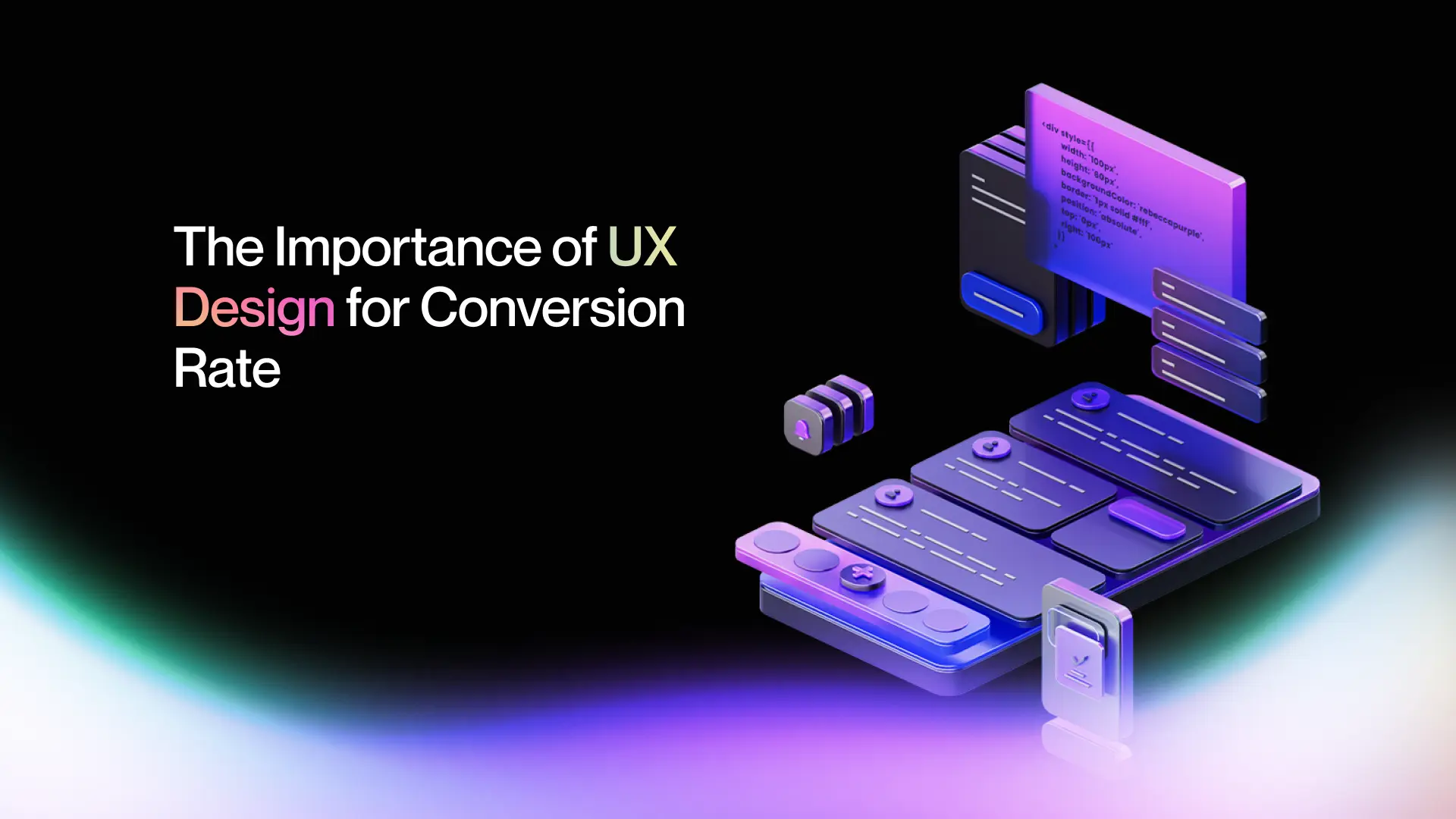
When it comes to the B2B SaaS industry, UX design can be a crucial factor in boosting conversion rates.
Simply put, think of your users as potential customers scrolling through your website. While exploring your website, the user is guided through an intuitive interface that effortlessly navigates them through a wide range of your offers.
There's no clue for confusion and chaos. Just a smooth transition and understanding how exactly your solution is ideal for their pain points.
This is exactly the magic of good UX design – boosting engagement, building trust, and guiding users on a seamless path to conversion.
This UX journey is not just about pleasing aesthetics, it's about removing friction every step of the way. In other words, strategic calls to action and a seamless UX allow users to achieve their desired action without obstacles.
To further sweeten the deal, building trust with users, social proof, and professional design can work wonders. This can create a sense of credibility that reinforces the user's belief that they're moving in the right direction.
But at UX, we don't stop there.
We go above and beyond in a multitude of ways to ensure that our design is not only compelling but also trustworthy.
Elevating B2B SaaS Conversion with Strategic UX Roadmap
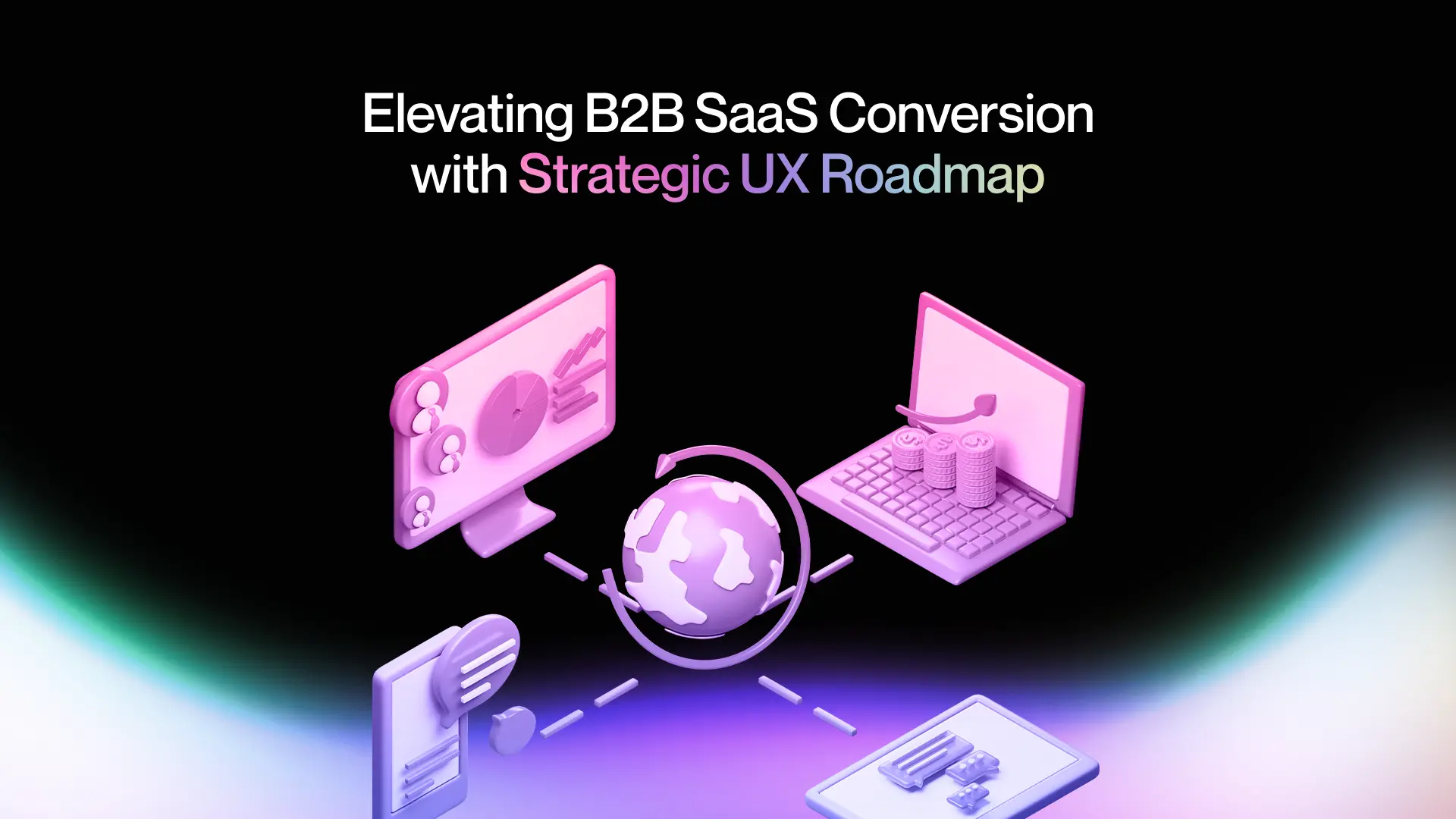
UX, in the context of B2B SaaS, really goes beyond mere aesthetics and visuals. Moreover, UX gets to the very core of how users interact with your B2B SaaS platform.
When it comes to conversion rate and UX, we can say that it is about creating an intuitive journey and user experience, with a name for the goal:
- to encourage seamless platform navigation
- to perform tasks efficiently
- to cause ultimate user satisfaction
When these factors are satisfied, a win-win situation is obtained. Users will have a unique experience and you will get an improved conversion rate in return. Here we see that the foundation of UX is much more complex, and should be seen as a strategic imperative, not as a nicely packaged design.
For all B2B SaaS companies looking to unlock the conversion potential of UX, here's a concrete strategic roadmap:
Collect user data:
Gathering user data is key to increasing conversion rates, and surveys, interviews, and usability testing are great ways to do so. Obtaining this data is crucial to gaining a deep understanding of user needs, pain points, and expectations, which will serve as your guiding light when designing.
Keep the focus on the user:
Another important aspect of UX design is to focus on the user, not just internal decisions. By doing so, you can customize the user experience to their specific needs, which is crucial for creating a successful product.
Experimentation is king:
Experimentation is crucial to creating the best design for your B2B SaaS users. A/B testing is a great method to compare different design elements and identify what works best for your user base. It's important to take an iterative approach, continuously refining the experience based on data and user feedback.
The power of personalization:
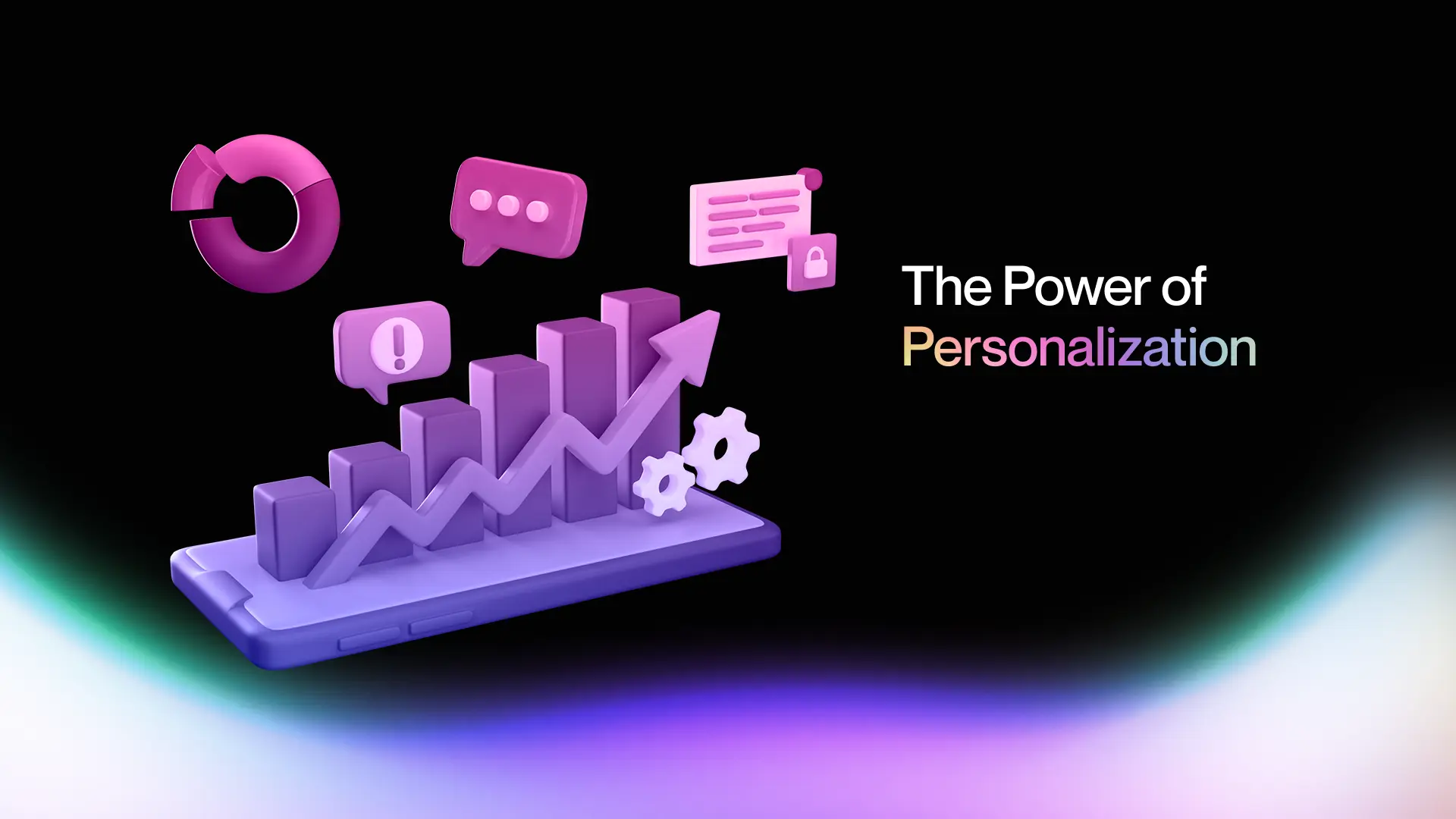
Personalization is a powerful tool that can greatly improve engagement and conversions, and offering different experiences to different user segments is a great way to do this.
By presenting features that are relevant to their specific roles and business challenges, you can drive engagement and conversions.
If you want to go a step further, those strategies could be a phenomenal starting point for leveling up your business game.
- Personalization of experiences: Satisfying users' unique needs and desires for deeper engagement.
- Inclusive approach to design: Making a product accessible to all to increase impact and reach.
- Data-driven decision making: Continuous testing and adjustments based on user data analysis to optimize conversion.
- Smooth onboarding: Guide users through the first steps without difficulty so that they recognize the value of the product as quickly as possible.
- Communicate the value clearly: Emphasize product benefits from the start, remove ambiguity, and encourage action. By investing in a user-centered approach, B2B SaaS companies unlock the true potential of UX design.
Key Points to Remember
In summary, survival in the B2B SaaS industry depends on prioritizing user-centered design approaches to increase conversion rates. Forget the urge to see perfect design - focusing on users is paramount today.
You can see the number of sign-ups could be seen as a heartbeat of your platform that will indicate its health. While tracking conversion rates is important, it's the user interface that quickens the pulse.
The close link between UX and conversions will precisely show how you can use it to make your platform resonate and stop visitor bounce rates.
The key for success? User-centricity, continuous testing and improvement based on data, and personalizing experiences.
Simply highlight the value of your product, clarify its purpose, and encourage user engagement investing in UX design.
Therefore, put your users at the center and watch your B2B SaaS glow!
